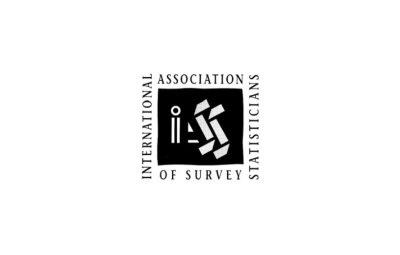I just returned from the Joint Statistical Meetings (JSM) in Portland, USA, which reaffirmed my belief that statisticians are rapidly becoming key players in the field of data science and are actively embracing the rise of artificial intelligence. The JSM is the largest gathering of statisticians and data scientists in North America, attracting over 5,000 participants from around the globe. The scientific program was both rich and diverse, with numerous significant topics covered during the four-day event. Sessions on data integration and multimodal data fusion, uncertainty quantification, big data analytics with machine learning, and discussions on responsible AI drew large audiences.
The International Statistical Institute (ISI) is one of the co-sponsoring societies of the program, and I am grateful to Eric Rancourt, who served as the ISI representative on the JSM Program Committee. I noticed at least six sessions sponsored or co-sponsored by the ISI at this JSM, with topics ranging from ethical statistical practice to challenges in time series and network analysis. I had the opportunity to participate in an ISI-sponsored invited panel discussion on the Role of Statistical Associations in Complex and Evolving National Governance Regimes. This session was chaired by Misha Belkindas and featured a panel that included Wendy Lou from the University of Toronto (Canada), Waldemar Tarczynski from the University of Szczecin (Poland), Partha Lahiri from the University of Maryland (USA), Dominik Rozkrut from Statistics Poland, and me.
The panelists focused on the significant challenges that professional statistical associations face as they adapt to the changing landscape in the digital age. These pressing issues include national and international regulations that shape data governance frameworks and digital policymaking, as well as the limited resources available to compete with other priorities at academic institutions, national statistics offices, and statistical associations. In my remarks, I emphasised the need for statistical associations to address fundamental issues rather than narrowly focusing on short-term challenges. I also discussed the importance of understanding and empowering junior members of our profession as we plan for the future. Regarding the role of the ISI, I shared my thoughts on the importance of broadening our outreach. While industry participation in the ISI has been limited, statisticians in the private sector, including those in the health industry and information technology sector, are valuable allies in promoting sound statistical and data science practices worldwide. For capacity development, we need to work on attracting more investments from governments and private foundations, and we also need more of our members to volunteer their time. For instance, Fabrizio Ruggeri, the ISI President-Elect, called for proposals for the ISI Academy Mentoring Program in May. Soon we will be calling for volunteers to contribute to our new ISI Magazine (under development). We need active member participation for these programs and initiatives to succeed.
The ISI’s presence at the JSM extended beyond our sponsored sessions. Conchita Kleijweg (ISI Director) and I took the opportunity to meet with ISI members and prospective members at the ISI booth. Conchita represented the ISI at the COPSS & Friends of COPSS business meeting on 6 August 2024, where she shared our vision and recent activities and exchanged ideas with other societies for stronger collaborations.
Back in July, I attended the International Symposium on Business and Industrial Statistics (ISBIS 2024) in Yogyakarta, Indonesia, sponsored by the International Society for Business and Industrial Statistics. The locals informed me that there are well over 100 colleges and universities in Yogyakarta, and the people there are eager to learn from us and contribute to our shared mission. As we know, about 30% of Southeast Asia's population is aged between 15 and 24 years, which translates to roughly 200 million young people in the region. This presents significant opportunities and potential for statistical capacity building. I applaud ISBIS for holding their biannual conference in Yogyakarta, which will have a considerable impact on the region. I look forward to seeing more ISI presence in developing countries. If you can help us expand our efforts in this direction, please reach out.
Until then please register for your participation at the World Statistics Congress 2025 in the Hague . I look forward to meeting you there.





